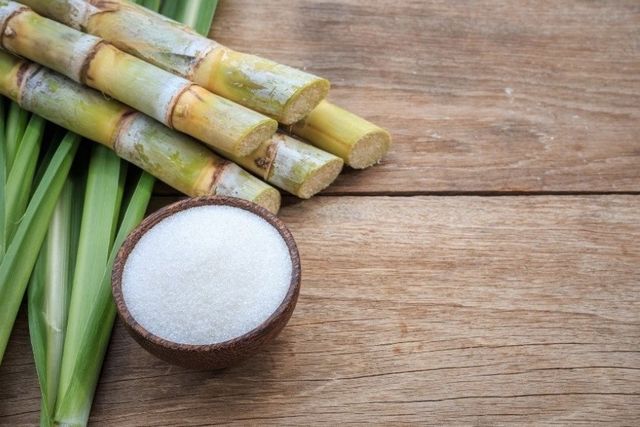Beet Sugar vs Cane: How They Affect Your Body and Overall Wellness
Beet Sugar vs Cane: How They Affect Your Body and Overall Wellness
Blog Article
The Great Discussion: Beetroot Sugar Vs Cane and Their Effect on Health
The recurring dispute surrounding beet sugar and walking stick sugar raises essential concerns regarding their particular health and wellness impacts and more comprehensive ramifications for consumer options. While both sweeteners share a similar chemical structure, their origins and processing approaches might influence not only nutrition yet also environmental sustainability. As health-conscious people weigh the benefits of each alternative, the ramifications of pesticide direct exposure and farming practices come into emphasis. This conversation welcomes us to think about not simply the sweetness we choose, yet the far-ranging impacts of those choices on our wellness and the earth. What might this indicate for future consumption patterns?
Summary of Sugar Resources
Sugar, a commonly taken in sweetener, mainly stems from 2 major resources: sugar beetroots and sugar walking stick. Sugar walking cane flourishes in subtropical and tropical climates, with major producers consisting of Brazil, India, and China.
On the other hand, sugar beetroots are mainly expanded in temperate regions, with considerable manufacturing in countries such as the United States, France, and Germany. The beetroots are harvested from the ground, sliced, and based on a procedure that transforms the removed juice into granulated sugar. While both sugar sources ultimately produce sucrose, their farming practices, processing methods, and geographical circulations differ markedly.
These differences can affect not only the ecological impact of sugar manufacturing but additionally the economic facets of sugar rates and trade. Understanding the beginnings of these sweeteners is important for policymakers and consumers alike, as it lays the structure for educated discussions about their wellness ramifications and sustainability.
Nutritional Comparison
When checking out the dietary profiles of beet sugar and walking stick sugar, both resources share a comparable structure as they primarily consist of sucrose. Sucrose is a disaccharide, made up of glucose and fructose, and is accountable for the sweetness associated with both sugars. The refining processes for both beet and cane sugar yield products that are predominantly pure sucrose, with minimal traces of vitamins, minerals, or other nutrients.
In terms of calorie content, both beet and walking stick sugars provide roughly 4 calories per gram. Neither kind of sugar offers considerable dietary benefits beyond energy stipulation, as they lack necessary vitamins or minerals. The existence of trace aspects, such as potassium, calcium, and magnesium, can differ slightly between the two, mainly due to the agricultural methods and soil conditions in which they are grown.
Additionally, the glycemic index values of beet sugar and walking stick sugar are comparable, indicating similar effects on blood sugar levels. Generally, from a dietary viewpoint, beetroot and walking stick sugars are functionally comparable, adding largely to calorie consumption without using considerable health advantages over each other.
Wellness Effects
The wellness effects of consuming beetroot sugar and walking cane sugar warrant careful consideration, particularly given the climbing prevalence of sugar-related health issues. Both types of sugar add similar caloric worths and can cause boosted dangers of excessive weight, type 2 diabetes, and cardio diseases when eaten in extra. The body sugars both metabolizes right into glucose, which can create spikes in blood glucose levels, bring about insulin resistance gradually.
While there is recurring dispute concerning the glycemic index of these sugars, studies recommend that both can adversely impact metabolic wellness if consumed in huge amounts. beet sugar vs cane. Additionally, the potential presence of impurities in beet sugar, such as chemicals from traditional farming methods, elevates further wellness issues. Conversely, cane sugar, specifically when minimally processed, might offer a somewhat extra desirable profile as a result of its natural state
In addition, the consumption of added sugars, no matter of the source, is linked to damaging health end results, consisting of dental problems and fatty liver condition. Small amounts is important, and people need to be mindful of their overall sugar intake from all sources, eventually focusing on entire foods over included sugars for ideal health and wellness end results.
Environmental Effect
Comprehending the health and wellness ramifications of beet and walking stick sugar additionally leads to an exam of their ecological influence, which can significantly influence agricultural sustainability and ecological equilibrium. Both sugar resources have distinctive environmental impacts, formed by their cultivation practices and geographical demands.

On the other hand, beet sugar is normally grown in warm climates and commonly entails varied crop turnings. This technique can enhance soil health and reduce reliance on chemical inputs. However, extensive beetroot farming can additionally bring about vitamins and mineral deficiency and insect stress if not taken care of sustainably.
Both sugar kinds present difficulties and opportunities for environmental stewardship. Advertising lasting farming techniques and liable sourcing can alleviate their effects, making sure that sugar manufacturing straightens with environmental visit preservation and long-lasting food safety.
Consumer Preferences
In the middle of growing awareness of health and wellness and ecological concerns, customer choices for sugar types are increasingly affected by perceptions of health benefits, sustainability, and ethical sourcing. Beetroot sugar and cane sugar each present special features that appeal to various customer demographics.
Health-conscious consumers typically inspect the dietary profiles of these sugars, seeking alternatives perceived as less processed or more natural. Cane sugar, typically considered the conventional sugar, is occasionally preferred for its regarded pureness and simplicity. In contrast, beetroot sugar, which is frequently originated from genetically modified crops, faces skepticism among those worried concerning GMOs.
Sustainability is an additional substantial factor affecting consumer choices. As understanding of agricultural methods expands, lots of customers choose products that straighten with eco-friendly farming techniques. Walking stick sugar production, especially when sourced from sustainable farms, can appeal to eco-conscious customers.
Ethical sourcing plays an essential role also, with customers increasingly favoring products that support fair labor techniques. Certifications such as Fair Trade can boost the appearance of walking cane sugar on the market. Eventually, customer choices are formed by an intricate interaction of wellness, ecological, and ethical considerations, driving demand for both beet and cane sugars in varied markets.
Verdict
In conclusion, the argument between beetroot sugar and walking cane sugar includes numerous variables, consisting of dietary accounts, wellness ramifications, and environmental consequences. beet sugar vs cane. While both sugars primarily consist of sucrose and exhibit similar calorie material, concerns relating to chemical use in beet sugar and the environmental influence of walking cane sugar monoculture warrant mindful factor to consider. As customers significantly focus on sustainability and health and wellness, educated selections pertaining to sugar More Help intake come to be essential in promoting overall well-being and environmental stewardship

Report this page